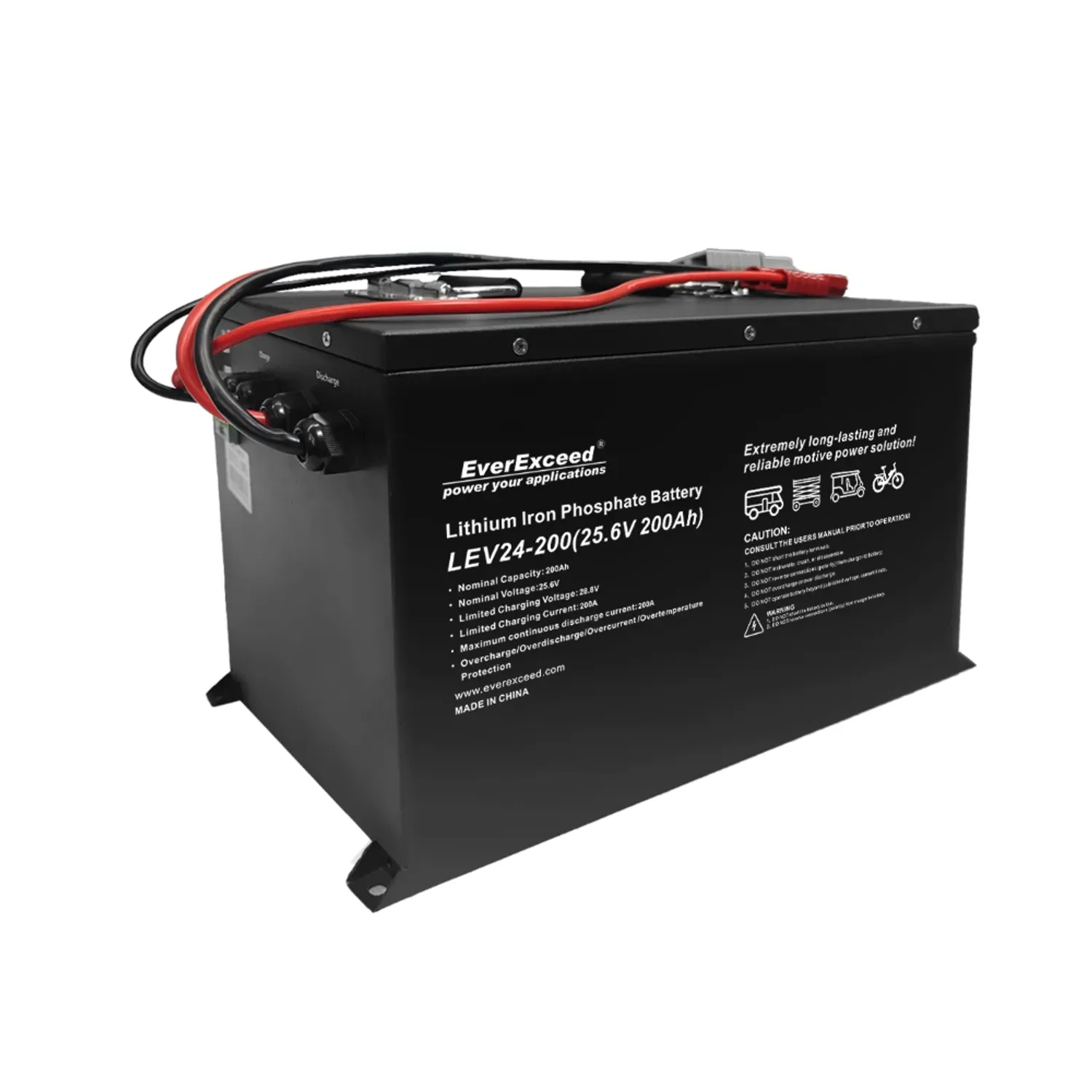
Get a Quote
What are the Cons to Lithium RV Batteries?
Lithium RV batteries have become increasingly popular among RV enthusiasts due to their numerous advantages over traditional lead-acid batteries. However, despite their many benefits, it's essential to consider the cons of lithium RV batteries to make an informed decision for your RV power needs. In this article, we will explore the various disadvantages of lithium RV batteries, shedding light on aspects that potential buyers should carefully evaluate.
Initial Cost: A Significant Investment
High Upfront Cost
One of the primary drawbacks of lithium RV batteries is their high upfront cost. Compared to lead-acid batteries, lithium batteries are significantly more expensive. The initial investment can be daunting for many RV owners, especially those on a tight budget. While the long-term benefits and savings might justify the cost, the high initial expense remains a barrier for many.
Long-Term Cost Analysis
Although lithium RV batteries have a longer lifespan and require less maintenance, the high upfront cost can still be a deterrent. Some RV owners might prefer to stick with more affordable options, even if they have to replace them more frequently. Conducting a thorough cost analysis is crucial to determine if the long-term savings of lithium batteries outweigh the initial expenditure.
Charging Challenges: Compatibility and Infrastructure
Charging Infrastructure
Another con to lithium RV batteries is the need for specialized charging equipment. Unlike traditional batteries, lithium RV batteries often require specific chargers to ensure optimal performance and safety. Not all RV parks and campgrounds are equipped with the necessary charging infrastructure, which can be inconvenient for travelers.
Compatibility Issues
Compatibility with existing RV systems can also pose a challenge. Many RVs are initially designed for lead-acid batteries, and switching to lithium batteries may require modifications to the electrical system. This can be a costly and time-consuming process, adding to the overall expense of upgrading to lithium RV batteries.
Safety Concerns: Risks and Precautions
Thermal Runaway
Safety is a significant concern when discussing the cons to lithium RV batteries. One of the primary risks is thermal runaway, a condition where the battery overheats and potentially catches fire. While modern lithium batteries are designed with safety features to mitigate this risk, it cannot be entirely eliminated. RV owners must ensure proper installation and maintenance to minimize the risk of thermal runaway.
Sensitive to Overcharging
Lithium RV batteries are also more sensitive to overcharging compared to lead-acid batteries. Overcharging can lead to overheating, reduced lifespan, and even potential safety hazards. It is crucial to use the appropriate charging equipment and follow manufacturer guidelines to avoid overcharging and ensure the longevity and safety of the battery.
Environmental Impact: Disposal and Recycling
Disposal Challenges
The disposal of lithium RV batteries presents environmental challenges. Unlike lead-acid batteries, which are widely recycled, lithium batteries require specialized recycling processes. Improper disposal can lead to environmental contamination, making it essential for RV owners to dispose of their lithium batteries responsibly.
Resource Intensive Production
The production of lithium RV batteries is resource-intensive, involving the extraction of lithium and other rare metals. This process has significant environmental impacts, including habitat destruction and water pollution. While lithium batteries offer many advantages, it is crucial to consider their environmental footprint and the importance of responsible sourcing and production practices.
Performance in Extreme Temperatures: Limitations in Harsh Conditions
Cold Weather Performance
Lithium RV batteries have limitations when it comes to performance in extreme temperatures. In cold weather conditions, their efficiency can decrease, leading to reduced power output and shorter battery life. RV owners who frequently travel to or live in colder climates need to be aware of this limitation and take appropriate measures to maintain battery performance.
Overheating in Hot Climates
Conversely, lithium RV batteries can also be prone to overheating in extremely hot climates. High temperatures can accelerate the degradation of the battery, reducing its overall lifespan. Proper ventilation and temperature management are essential to ensure the longevity and performance of lithium RV batteries in hot conditions.
Weight and Size: Space and Handling Considerations
Heavier than Expected
While lithium batteries are generally lighter than lead-acid batteries, they can still be heavier than some RV owners expect. This added weight can affect the overall weight distribution and balance of the RV, potentially impacting handling and fuel efficiency. It is crucial to consider the weight and size of the battery when planning for installation and storage.
Space Requirements
Lithium RV batteries also require adequate space for installation and ventilation. Ensuring proper airflow and temperature management is critical to avoid overheating and ensure optimal performance. RV owners may need to modify their battery compartments or storage areas to accommodate the new batteries, adding to the overall cost and complexity of the upgrade.
Availability and Supply Chain Issues: Market Dynamics
Limited Availability
The increasing demand for lithium batteries has led to supply chain constraints and limited availability. RV owners may experience delays in obtaining lithium RV batteries, particularly during peak seasons or periods of high demand. Planning ahead and securing batteries well in advance is advisable to avoid potential disruptions to travel plans.
Price Volatility
The price of lithium and other raw materials used in lithium RV batteries can be volatile, influenced by global market dynamics. This price volatility can impact the overall cost of lithium batteries, making it challenging for RV owners to budget for upgrades or replacements. Keeping an eye on market trends and potential price fluctuations is essential for informed decision-making.
Maintenance and Lifespan: Balancing Care and Longevity
Regular Maintenance
Despite their many advantages, lithium RV batteries still require regular maintenance to ensure optimal performance. This includes monitoring battery levels, ensuring proper charging, and performing periodic inspections. While maintenance requirements are generally lower than those of lead-acid batteries, neglecting proper care can lead to reduced lifespan and performance issues.
Lifespan Variability
The lifespan of lithium RV batteries can vary significantly depending on usage patterns, charging practices, and environmental conditions. Some users may experience shorter battery life due to frequent deep discharges or exposure to extreme temperatures. Understanding the factors that influence battery lifespan and adopting best practices can help maximize the longevity of lithium RV batteries.
Conclusion
When considering the cons to lithium RV batteries, it is crucial to weigh these disadvantages against their numerous benefits. The high upfront cost, charging challenges, safety concerns, environmental impact, performance limitations in extreme temperatures, weight and size considerations, availability issues, and maintenance requirements are all important factors to consider.
In conclusion, while lithium RV batteries offer significant advantages, they are not without their challenges. Being aware of these cons and taking proactive steps to address them can help ensure a successful and satisfying transition to lithium RV batteries.
At EverExceed, we understand the complexities and challenges associated with choosing the right lithium RV batteries. Our extensive range of lithium-ion batteries is designed to deliver exceptional performance, reliability, and safety. With our cutting-edge technology and commitment to quality, EverExceed batteries provide a long lifespan, efficient power output, and robust safety features to give you peace of mind on the road. By choosing EverExceed, you are not only investing in high-quality lithium RV batteries but also gaining access to unparalleled customer service and technical expertise. Explore our range of lithium-ion batteries today and experience the difference that EverExceed can make for your RV adventures.


